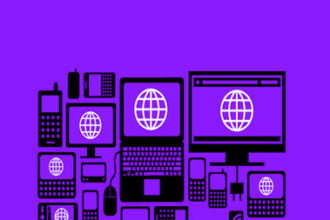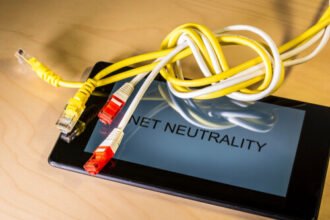 It was rumored for the past few weeks that this would be the week that the Federal Communications Commission (FCC) would preview new rules to protect net neutrality (if you want more background on net neutrality and the issues I wrote this post last year).
It was rumored for the past few weeks that this would be the week that the Federal Communications Commission (FCC) would preview new rules to protect net neutrality (if you want more background on net neutrality and the issues I wrote this post last year).
 It was rumored for the past few weeks that this would be the week that the Federal Communications Commission (FCC) would preview new rules to protect net neutrality (if you want more background on net neutrality and the issues I wrote this post last year). Today on Wired.com, FCC Chairman Tom Wheeler explained the proposal that will go before the FCC for a vote on February 26th. It has taken quite a while to get to this point, including the ruling by a federal appeals court last year striking down the earlier FCC Open Internet Rules which were founded on classifying ISPs as information services not common carriers. The new proposal, which comes after a crush of public feedback and massive lobbying efforts against reclassification by companies like Comcast, Verizon, AT&T, TWC, etc. will reclassify ISPs (both landline and wireless) as Common Carriers under Title II. This reclassification will allow the FCC to establish Internet rules on the much more solid footing of Title II which is used to regulate utilities including telecommunications companies. Title II is a collection of rules that are very broad, all of which “could” be applied to ISPs. The longer term question is, which of those rules will the FCC choose to apply to the ISPs?
It was rumored for the past few weeks that this would be the week that the Federal Communications Commission (FCC) would preview new rules to protect net neutrality (if you want more background on net neutrality and the issues I wrote this post last year). Today on Wired.com, FCC Chairman Tom Wheeler explained the proposal that will go before the FCC for a vote on February 26th. It has taken quite a while to get to this point, including the ruling by a federal appeals court last year striking down the earlier FCC Open Internet Rules which were founded on classifying ISPs as information services not common carriers. The new proposal, which comes after a crush of public feedback and massive lobbying efforts against reclassification by companies like Comcast, Verizon, AT&T, TWC, etc. will reclassify ISPs (both landline and wireless) as Common Carriers under Title II. This reclassification will allow the FCC to establish Internet rules on the much more solid footing of Title II which is used to regulate utilities including telecommunications companies. Title II is a collection of rules that are very broad, all of which “could” be applied to ISPs. The longer term question is, which of those rules will the FCC choose to apply to the ISPs?
The basic, underlying goal of the FCC in reclassification is to get the legal grounds to regulate the Internet and keep it an open platform. While the exact rules that will be applied to the ISPs will remain an open question for some time, the underlying objective was made clear by Chairman Wheeler. The FCC plans to put rules in place that will ensure:
- The Internet remains an open platform for innovation
- Paid prioritization of content (and services) / content providers would be ruled illegal. This is a particularly important point, as the so called Internet fast lanes have been a particularly egregious part of the ISPs actions against consumers and content providers like Netflix, Hulu, etc. The Internet would then be an open conveyance to all content / content providers. Or put differently, if you pay for a certain download speed / bandwidth the ISP would not be allowed to throttle content from providers that it then tries to also charge for the same thing you already paid for, network bandwidth.
- Consumers have a place to go for help if they have problems / issues with an ISP that are unresolved by direction interaction between the consumer and the ISP. This is not currently the case, currently consumers can only deal with the ISP but there is no agency to intervene if the problem persists (short of the court of the social Internet anyway).
- A level playing field for infrastructure that will likely result in more investments. Specifically this reclassification would benefit Google (it is in support of this change) and its Google Fiber initiative by giving it access to utility poles and other infrastructure assets that it currently would have to pay other utilities to use.
The reclassification still has to pass the FCC vote on the 26th of course, but it seems likely that it will pass. It’s also likely that Congress, which is already giving some indication that at least some members are not supportive of the FCC’s reclassification efforts, will try to pass some legislation changing the underlying communications act (the bill has been proposed a couple of times before). Whether it would pass is very questionable though. Once the reclassification is done, it is even more likely that AT&T and Verizon (and others) will try to fight the FCC in court. Also good to note that the changes would take awhile, maybe up to a year, to be put into effect. If you want to support this effort, you can reach out to the FCC here.








